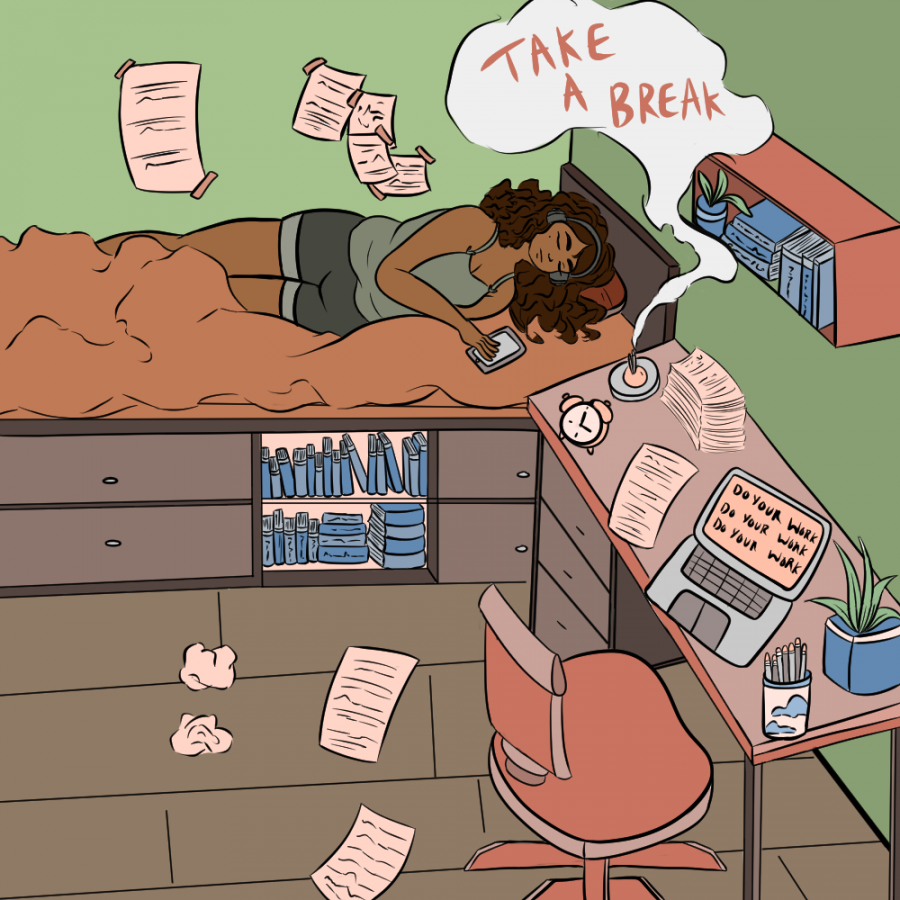How to practice mindfulness while balancing productivity levels
August 24, 2021
In a time when society seems to equate your productivity to your worth, many students struggle to practice mindful productivity.
The Daily Texan compiled tips on balancing school and mental health without feeling guilty.
Practice mindfulness beforehand
James Butler, mindfulness campus coordinator in the Longhorn Wellness Center, said mindfulness can help students understand their emotions during times of stress. To stay prepared for times of high stress, Butler recommends adding mindfulness exercises into a daily routine, such as the 54321 technique, to ease stress.
“(With) your morning routine, figure out a way to be truly mindful,” Butler said. “While you’re brushing your teeth, or with your coffee, your tea, notice your senses. Notice the smells, the way the cup feels in your hand. (Focus on) weaving it into your daily life, but having it be consistent. That can be helpful when you’re really stressed because then you can do it every day, and (it) builds into your memory.”
Don’t compare yourself to others
The quiet disease of impostor syndrome can make students feel inadequate. Katy Redd, associate director for prevention, development and media relations with the Counseling and Mental Health Center, said throughout her experiences talking to UT students, many compare their productivity to their peers.
“The students who come to UT are some of the highest-performing students from their high schools,” Redd said. “Then they get here, and everybody’s high-performing. That can create this kind of pressure cooker environment where you feel like you have to always be doing more. … It’s like when you go to a gym and you’re on a treadmill and you like going there to walk, but then the person next to you is sprinting because they came to work. Then you feel like, ‘OK, well, I’ll go a little faster and do a little bit more.’ Then you’re trying to keep up and you’re like, ‘This wasn’t what I came for.’”
Turn to hobbies
Butler said saving personal time remains important, even something as small as listening to music can help. Having time set apart for immersive activities you love helps relax your brain.
“Trust that power that you have within yourself,” Butler said. “(Watch for) what you lean into when times get tough. Is it music, movement, art, nature, connection (with peers)? Listen and trust yourselves because there’s a lot of power within that sometimes can get cloudy.”
Access CMHC services
When normal stress relievers don’t work as well anymore, CMHC offers classes, workshops and people to talk to to help relieve stress. Redd and Butler also recommend the Thrive at UT app, which helps develop skills relating to mindfulness and practicing self-compassion. Redd said taking CMHC’s brief assessment connects a student to a counselor who can recommend services. She also recommended checking out CMHC’s self-care activities and stress-reducing practices.












